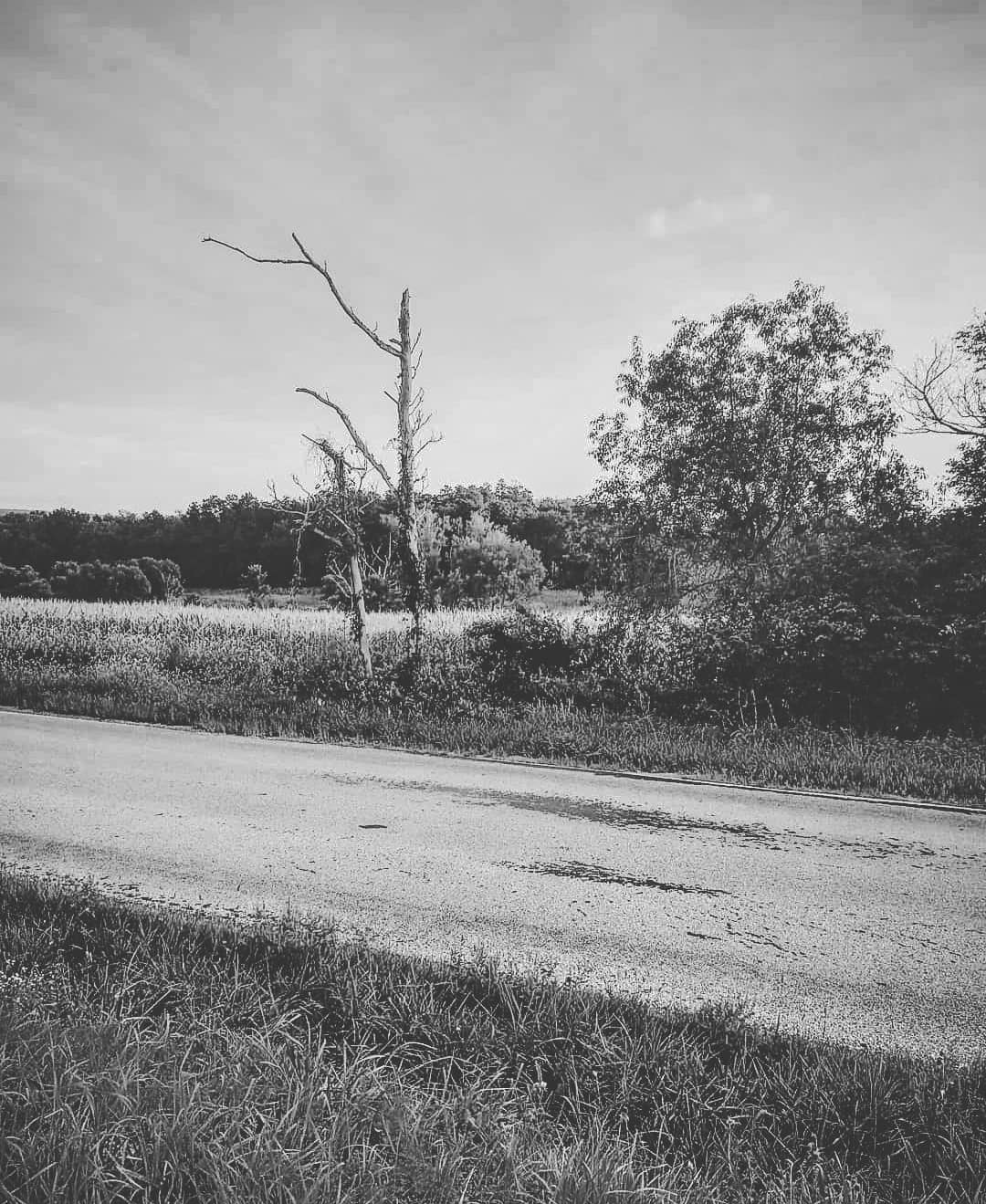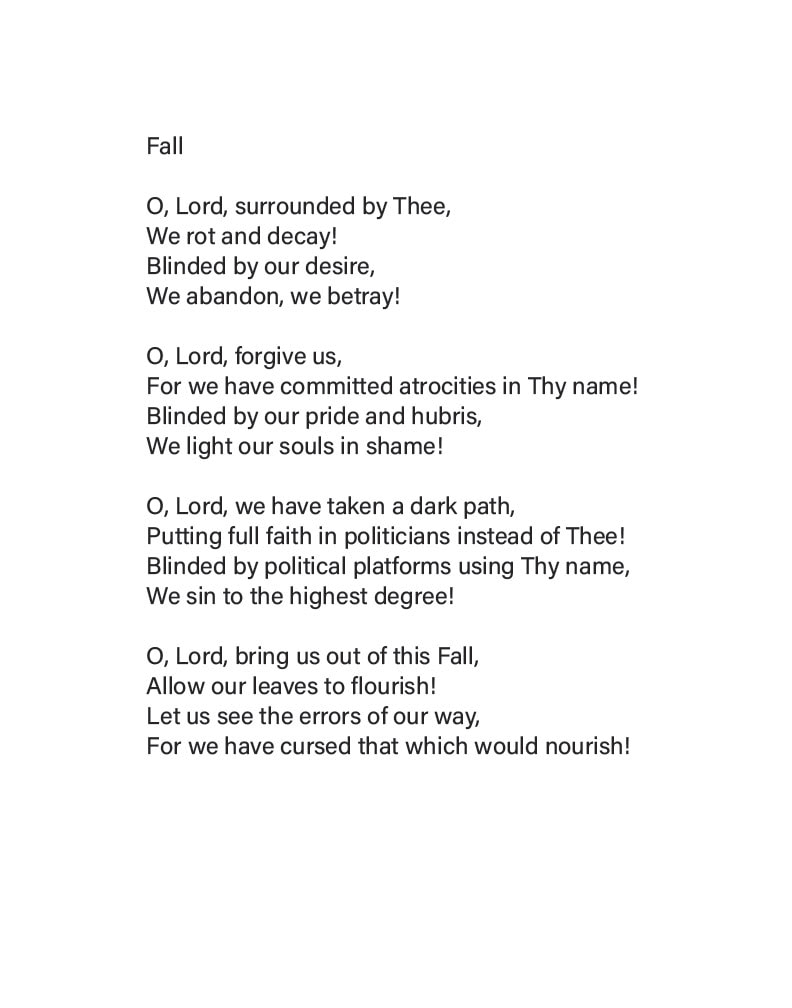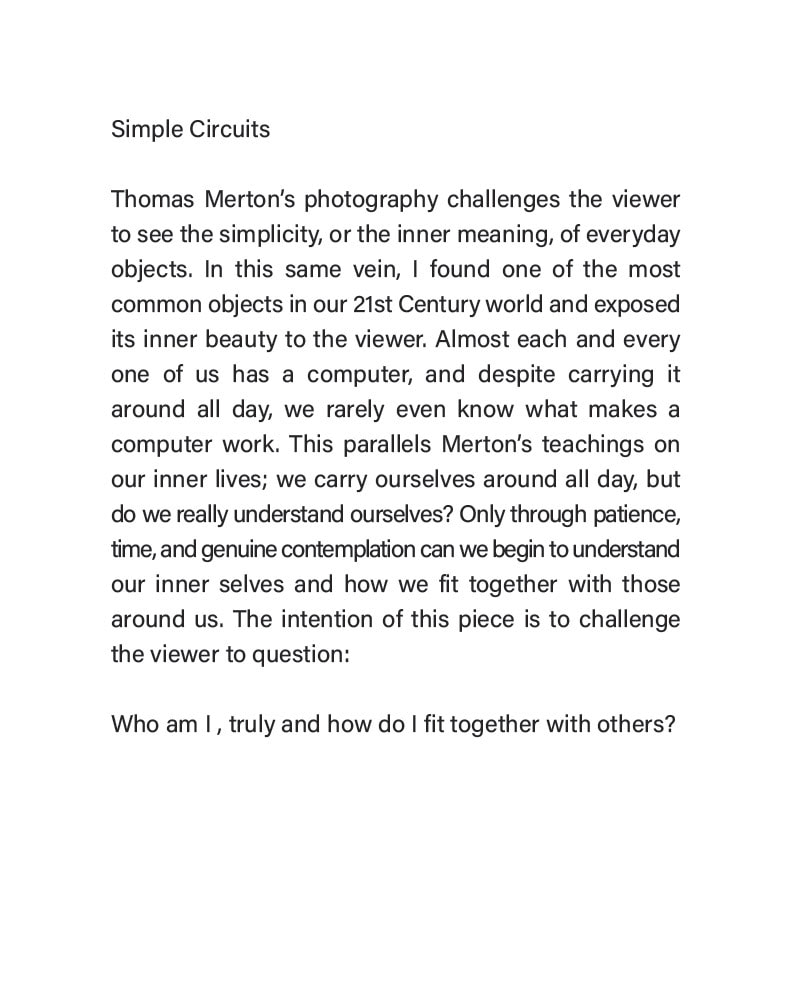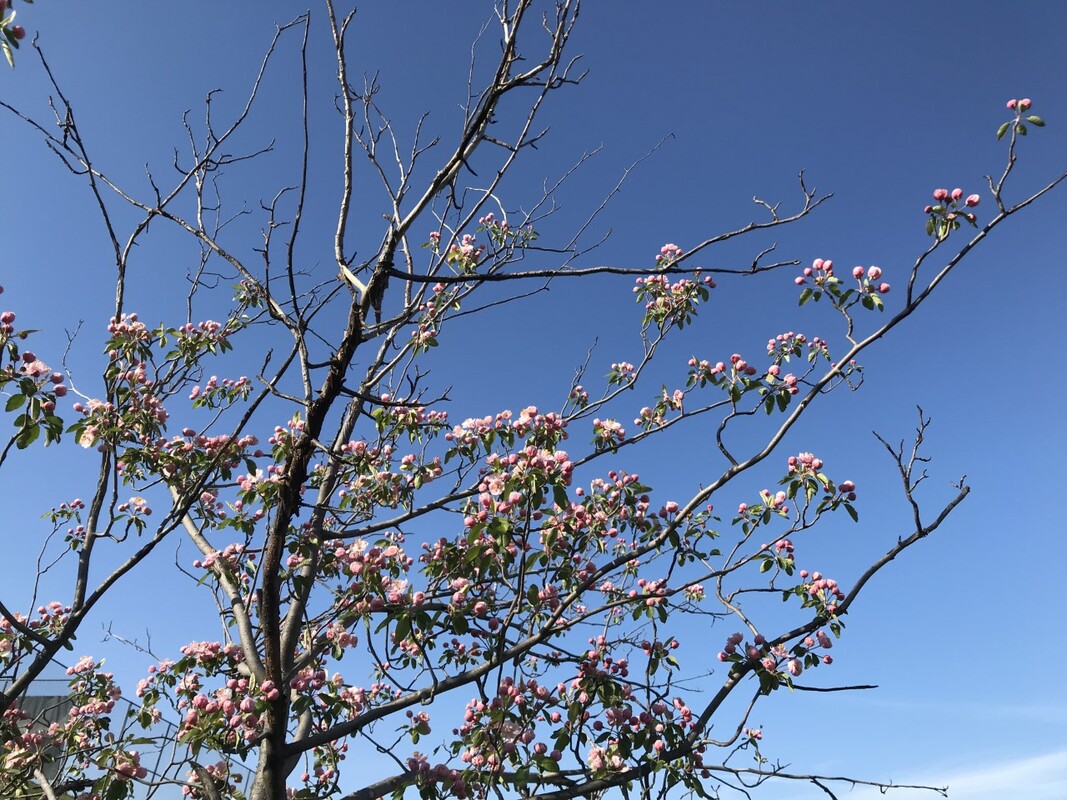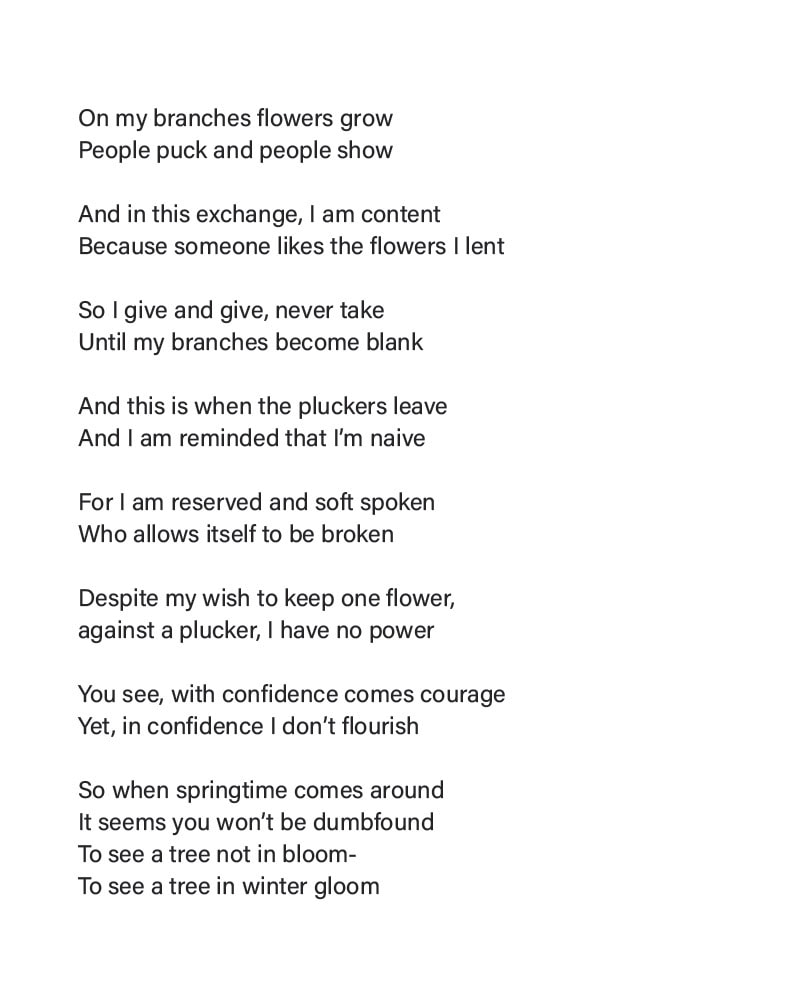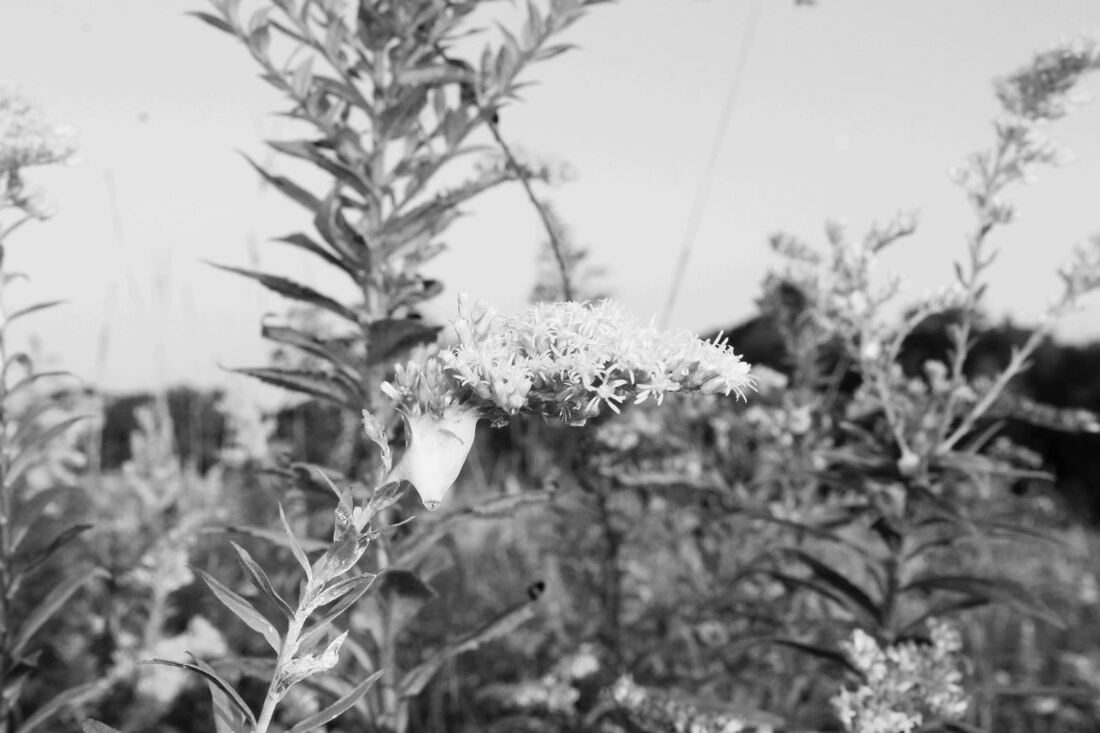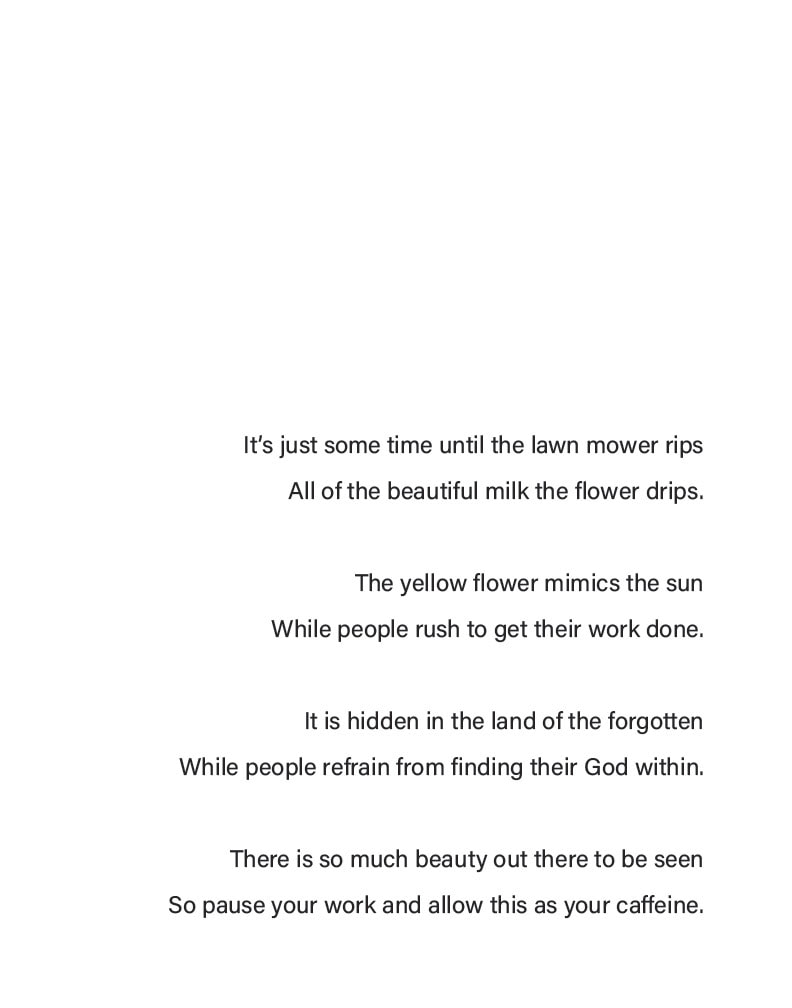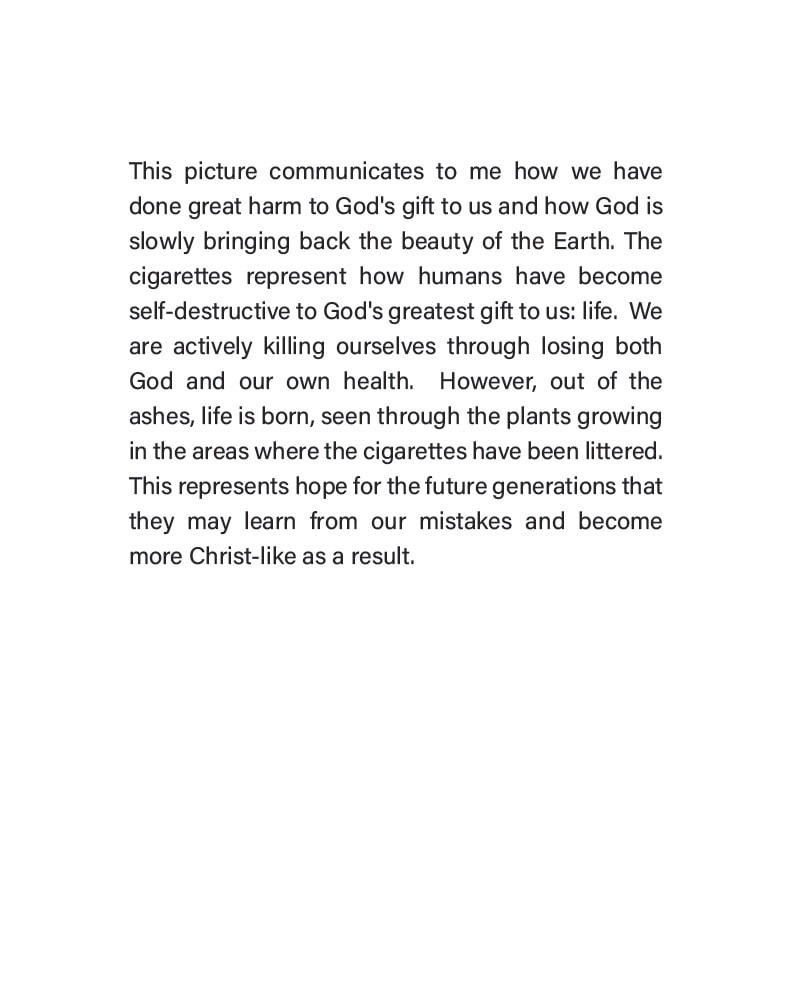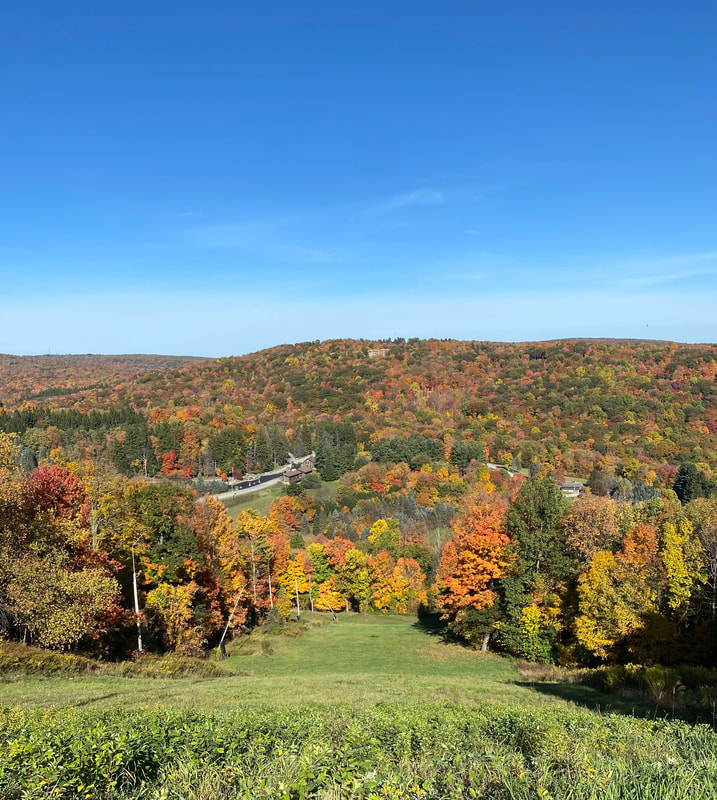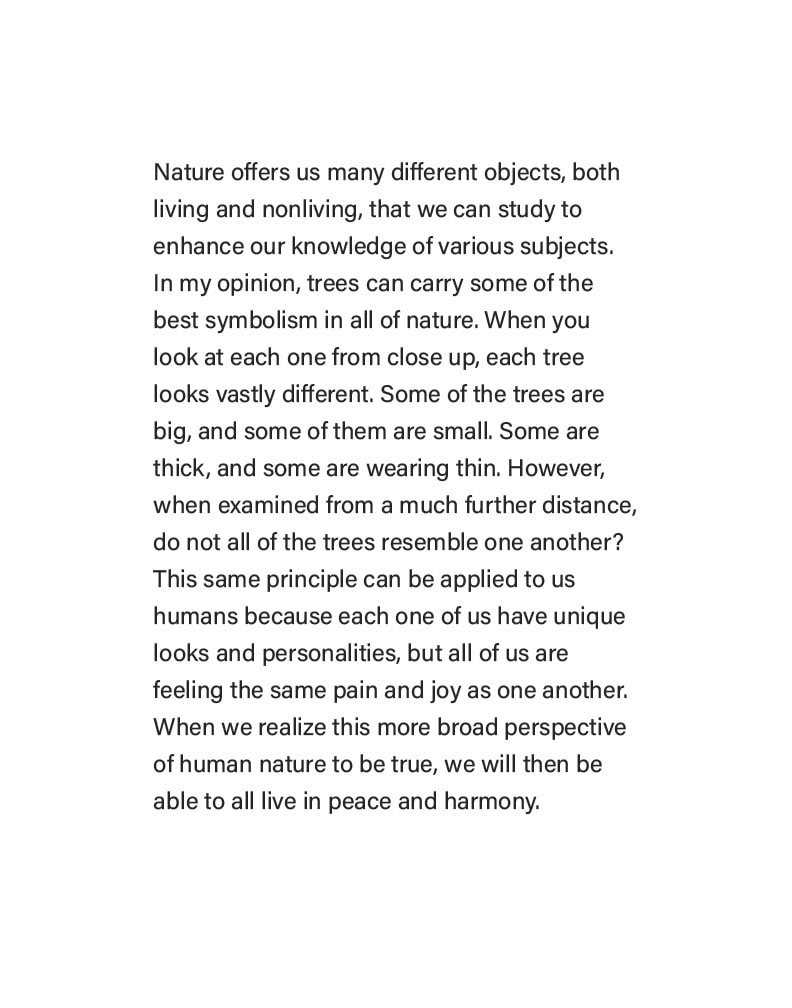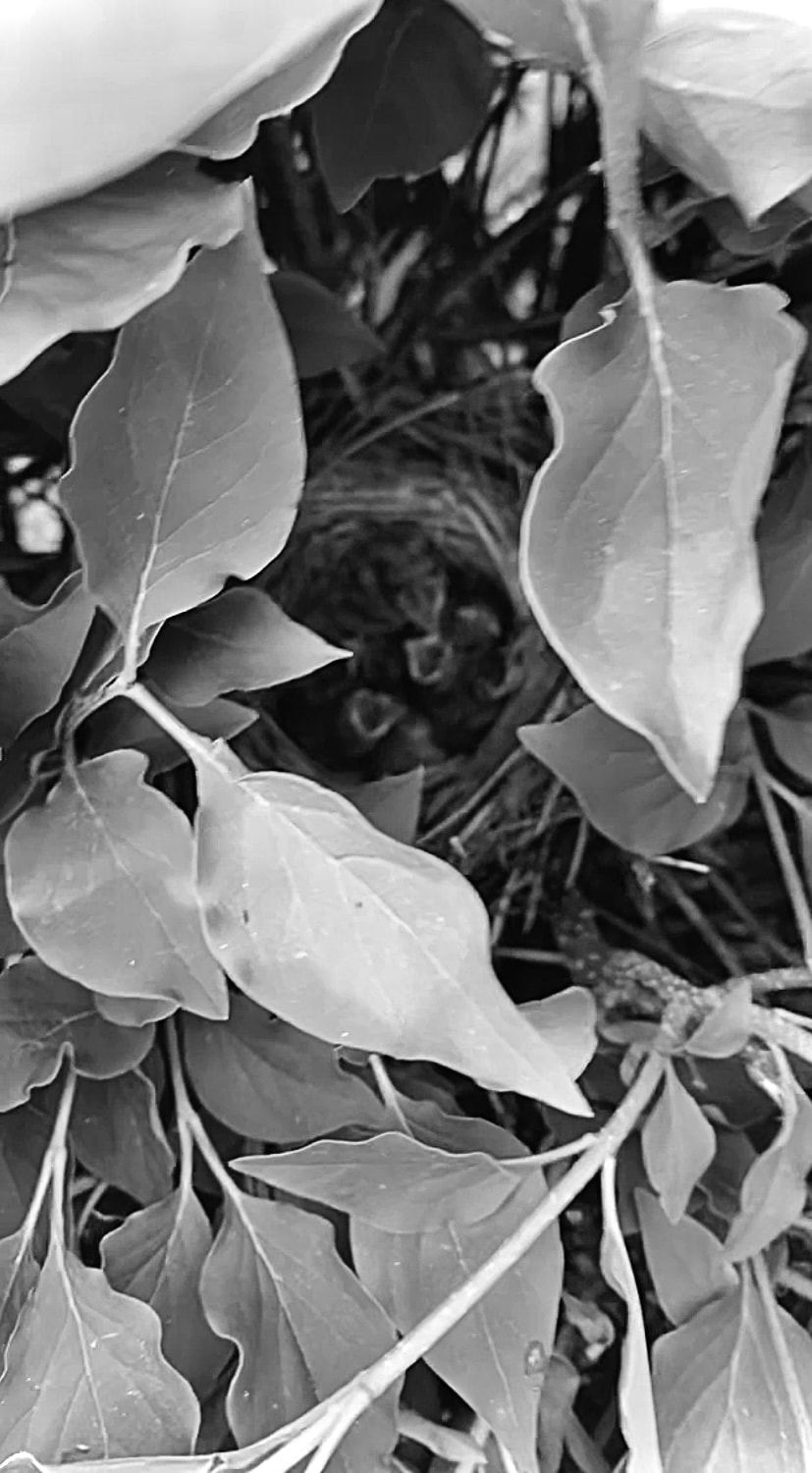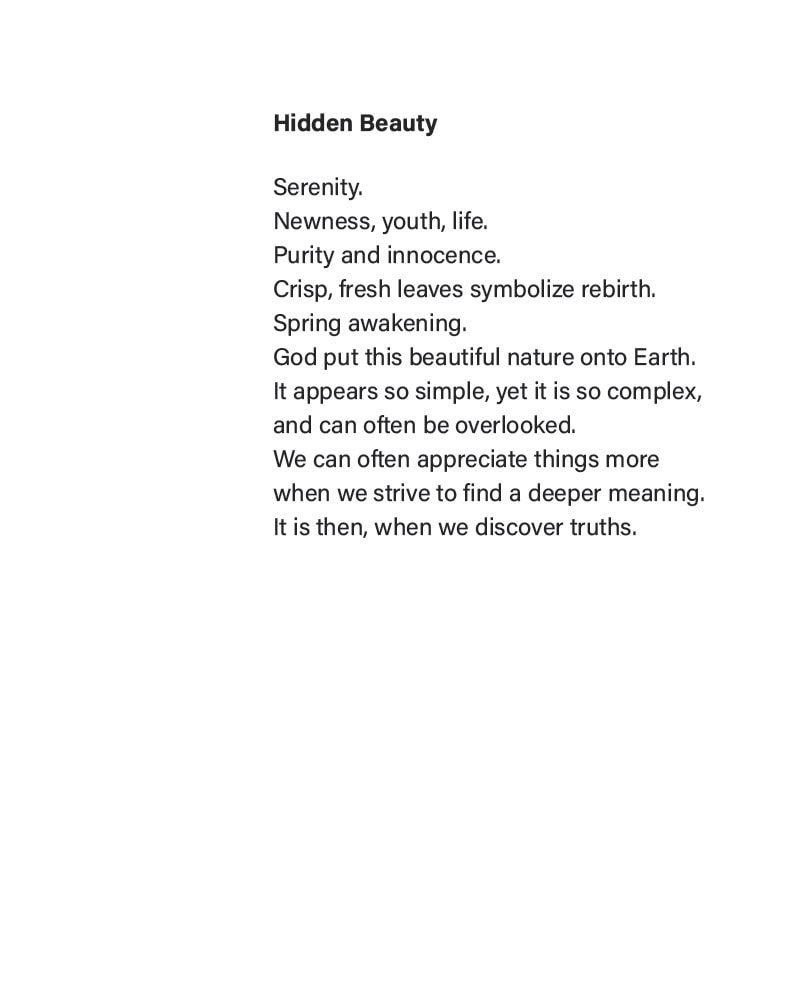Creative Expression in the Style of Thomas Merton
Patricia Sharbaugh, Ph.D. \ Spring 2021
Thomas Merton (1915-1968) was an American Cistercian monk who lived out his monastic calling at the Abbey of Our Lady of Gethsemani in Trappist, Kentucky. While best known for his spiritual writing, Merton was also a poet, a mystic, a social activist, an individual who studied and was in conversation with people of other faith traditions, and an artist. Merton’s wide variety of interests were highly focused because he approached often divergent disciplines through the single lens of contemplation, his desire to nurture an awakened and faithful heart open to knowing and loving God.
The Spring 2021 Honor’s course, TH 346H-01: Thomas Merton: Monk, Writer, Spiritual Master explored Merton’s life and thought primarily through his writing but was enhanced by an interdisciplinary approach that included the study of Merton’s artistic practices. As the COVID-19 pandemic continues to affect millions throughout the world, Merton's reverence for often overlooked beauty and the monastic practice of solitude take on new relevance. The photographs and writing displayed here are the fruit of a semester-long study and reflection on Merton’s contemplative vision of life as meaning hidden in plain sight.
The Spring 2021 Honor’s course, TH 346H-01: Thomas Merton: Monk, Writer, Spiritual Master explored Merton’s life and thought primarily through his writing but was enhanced by an interdisciplinary approach that included the study of Merton’s artistic practices. As the COVID-19 pandemic continues to affect millions throughout the world, Merton's reverence for often overlooked beauty and the monastic practice of solitude take on new relevance. The photographs and writing displayed here are the fruit of a semester-long study and reflection on Merton’s contemplative vision of life as meaning hidden in plain sight.
